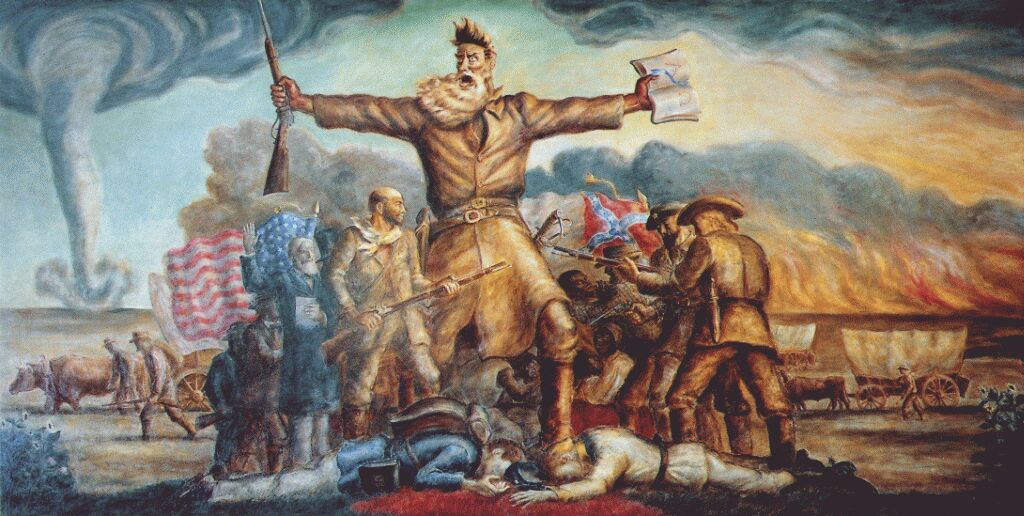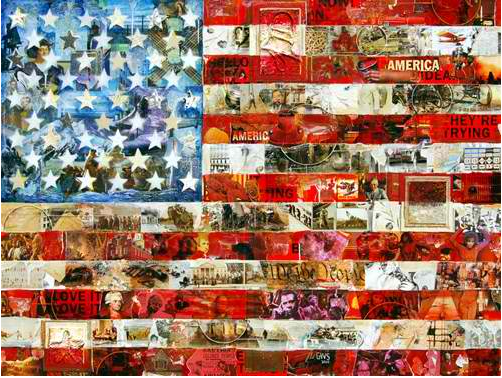US History (8th Grade NC Social Studies)
The key to mastering US HISTORY is asking the right questions. As you learn about new topics, ask the BIG IDEA and SMALL IDEA questions. If you can answer these questions, then you have mastered that topic.
Big Idea Questions:
Small Idea Questions:
8th Grade NC History Standards
8.H.2.1 Explain the impact of economic, political, social, and military conflicts (e.g. war, slavery, states’ rights and citizenship and immigration policies) on the development of North Carolina and the United States.
The student will understand:
The student will know:
For example: Internal and external wars; sectional and regional perspectives on the issue of slavery; economic policies both past and present; the immigration debate over time, etc.
For example: Students will know the impact that The Great Depression had on various groups within North Carolina and the United States it affected different populations and regions in various ways. Also, students will know the impact that Jim Crow laws had on various populations and regions such as segregated housing, access to resources, etc. as well as the demographic make-up of towns, cities, states and regions due to migration and settlement patterns
8.H.2.2 Summarize how leadership and citizen actions (e.g. the founding fathers, the Regulators, the Greensboro Four, and participants of the Wilmington Race Riots, 1898) influenced the outcome of key conflicts in North Carolina and the United States.
The student will understand:
The student will know:
8.H.2.3 Summarize the role of debate, compromise, and negotiation during significant periods in the history of North Carolina and the United States.
The student will understand:
The student will know:
For example: Presidential debates, the debates over slavery, the debates in the North Carolina General Assembly and the United States Congress regarding the budget, immigration laws, etc., economic debates over the benefits of New Deal programs, cultural debates over fashion changes in various ears (1920s/1950s), or debates over civil rights issues such as the Greensboro sit-ins.
For example: United States Constitutional compromises such as the Great Compromise, the Three-Fifths Compromise, the Missouri Compromise, the Compromise of 1877, etc.
For example: The negotiations that took place in North Carolina that eventually lead to the state’s support of the United States Constitution.
8.H.3.1 Explain how migration and immigration contributed to the development of North Carolina and the United States from colonization to contemporary times (e.g. westward movement, African slavery, Trail of Tears, the Great Migration and Ellis and Angel Island).
The student will understand:
The student will know:
8.H.3.2 Explain how changes brought about by technology and other innovations affected individuals and groups in North Carolina and the United States (e.g. advancements in transportation, communication networks and business practices).
The student will understand:
The student will know:
8.H.3.3 Explain how individuals and groups have influenced economic, political and social change in North Carolina and the United States
The student will understand:
The student will know:
For example: John White, Penelope Barker, Henry Berry Lowery, Ella Baker, Terry Sanford, Jim Hunt, Jesse Helms, James K. Polk, and other governors, congressional leaders, presidents, civil rights leaders, activists, citizens, etc.
For example: The Regulators, Abolitionists, Greensboro Four, and the women of the Edenton Tea Party all affected change in North Carolina and the United States.
8.H.3.4 Compare historical and contemporary issues to understand continuity and change in the development of North Carolina and the United States
The student will understand:
The student will know:
Big Idea Questions:
- How does CONFLICT effect the US/NC?
- How do leaders change the US/NC?
- How do individuals/groups change the the US/NC?
- Why is debate, compromise, and negotiation important in the evolution of the US/NC?
- How does immigration and migration effect US/NC?
- How does technology change the US/NC?
- How are past and present events similar?
Small Idea Questions:
- What conflicts effected US/NC?
- What leaders effected the US/NC?
- What individuals/groups changed the US/NC?
- What debates, compromises, and negotiations were important in the evolution of the US/NC?
- What migrations and immigration patterns effected the US/NC?
- What technological innovations changes the US/NC?
- What past and present events are similar?
8th Grade NC History Standards
8.H.2.1 Explain the impact of economic, political, social, and military conflicts (e.g. war, slavery, states’ rights and citizenship and immigration policies) on the development of North Carolina and the United States.
The student will understand:
- Conflicts as well as their causes and implications are multifaceted.
- Conflict most often results in societal change.
- National and global conflicts do not always have the same implications for all involved.
The student will know:
- North Carolina’s role in a variety of local state, national and global conflicts
For example: Internal and external wars; sectional and regional perspectives on the issue of slavery; economic policies both past and present; the immigration debate over time, etc.
- The United States role in global conflicts as well as the reason for involvement and non-involvement
For example: Students will know the impact that The Great Depression had on various groups within North Carolina and the United States it affected different populations and regions in various ways. Also, students will know the impact that Jim Crow laws had on various populations and regions such as segregated housing, access to resources, etc. as well as the demographic make-up of towns, cities, states and regions due to migration and settlement patterns
8.H.2.2 Summarize how leadership and citizen actions (e.g. the founding fathers, the Regulators, the Greensboro Four, and participants of the Wilmington Race Riots, 1898) influenced the outcome of key conflicts in North Carolina and the United States.
The student will understand:
- Leadership and citizen actions can affect the outcome of conflicts.
- Citizen action is sometimes contrary to established laws and the ideas of leadership.
- Leadership can take many different forms from heads of state-to-state and local officials to ordinary citizens.
- Citizens play a key role in the governance of democratic societies.
The student will know:
- Various types of leadership (e.g., proprietors, governors, presidents and other heads of state, legislators and other government officials, business and community leaders, citizens).
- How different types of citizen action influenced the outcome of conflicts (e.g., boycott, protest, letter writing).
- The ways in which leaders may have influenced the outcome of conflicts (both positively and negatively) through actions and decision-making such as negotiation, compromise, and deal making.
8.H.2.3 Summarize the role of debate, compromise, and negotiation during significant periods in the history of North Carolina and the United States.
The student will understand:
- Democracies depend on debate, compromise, and negotiations to maintain their existence.
The student will know:
- Some historical and contemporary economic, political, and cultural debates that have taken place in North Carolina and the United States.
For example: Presidential debates, the debates over slavery, the debates in the North Carolina General Assembly and the United States Congress regarding the budget, immigration laws, etc., economic debates over the benefits of New Deal programs, cultural debates over fashion changes in various ears (1920s/1950s), or debates over civil rights issues such as the Greensboro sit-ins.
- Various compromises that have taken place in North Carolina and the United States.
For example: United States Constitutional compromises such as the Great Compromise, the Three-Fifths Compromise, the Missouri Compromise, the Compromise of 1877, etc.
- Various instances of negotiation that have taken place in North Carolina and the United States
For example: The negotiations that took place in North Carolina that eventually lead to the state’s support of the United States Constitution.
8.H.3.1 Explain how migration and immigration contributed to the development of North Carolina and the United States from colonization to contemporary times (e.g. westward movement, African slavery, Trail of Tears, the Great Migration and Ellis and Angel Island).
The student will understand:
- Migration and immigration helps to shape the development of a state and nation by contributing new ideas, culture, and a workforce.
- Migration and immigration patterns may change due to environmental and societal changes.
The student will know:
- Reasons why people immigrate to the United States.
- Reasons for migration within the United States with specific emphasis on the reasons for migration to and from North Carolina. This includes both forced and voluntary migration.
- Changing demographics of North Carolina and the United States as a result of immigration to the United States and migration within the United States and North Carolina.
8.H.3.2 Explain how changes brought about by technology and other innovations affected individuals and groups in North Carolina and the United States (e.g. advancements in transportation, communication networks and business practices).
The student will understand:
- Technology encompasses many different types of innovation.
- Technology and innovation can lead to societal changes and economic growth.
The student will know:
- Identify technological advances in United States/North Carolina history (e.g., cotton gin, canals, railroads, Wright Brother’s airplane, Research Triangle Park, Dismal Swamp Canal).
- How the various innovations came to fruition as well as their impact on individuals and groups in various regions of North Carolina and the United States.
8.H.3.3 Explain how individuals and groups have influenced economic, political and social change in North Carolina and the United States
The student will understand:
- Both individuals and groups can be powerful forces for societal change.
The student will know:
- The beliefs, feelings and actions of people who affected change in North Carolina and the United States.
For example: John White, Penelope Barker, Henry Berry Lowery, Ella Baker, Terry Sanford, Jim Hunt, Jesse Helms, James K. Polk, and other governors, congressional leaders, presidents, civil rights leaders, activists, citizens, etc.
- How groups have affected change in the North Carolina and the United States.
For example: The Regulators, Abolitionists, Greensboro Four, and the women of the Edenton Tea Party all affected change in North Carolina and the United States.
8.H.3.4 Compare historical and contemporary issues to understand continuity and change in the development of North Carolina and the United States
The student will understand:
- Current events may build upon past events; however, the circumstances surrounding the events as well as the outcomes may differ.
- Historical events play a role in the change and stability of a society.
The student will know:
- The circumstances surrounding particular current events and issues in North Carolina, the United States and the world and how these events mirror and are shaped by past events.
- History is comprised of reoccurring themes.


